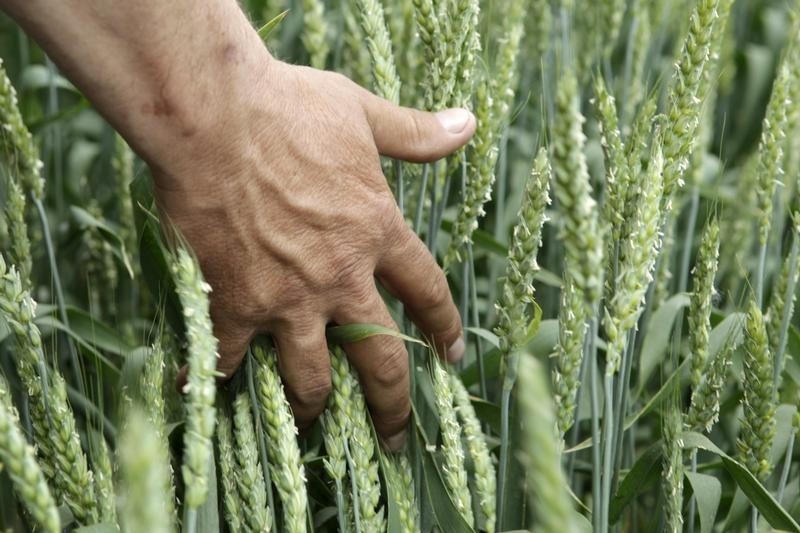By Colin Packham
SYDNEY, June 30 (Reuters) - Australia is expected to see wetter-than-average conditions across much of the country over the next three months, the country's weather bureau said on Thursday, providing a boost for the country's agricultural production.
Much of the country's east coast and South Australia has an 80 percent chance of exceeding the average rainfall totals between July and September, the Bureau of Meteorology (BOM) said.
Western Australia - the country's biggest rural producing state - has a 70 percent likelihood of exceeding average rainfall, the bureau said.
Should the weather outlook pan out as expected, output of agricultural goods such as wheat, beef, sugar and milk could exceed official estimates.
The weather outlook is a particular boost for wheat production, Australia's most significant rural export.
Australia earlier this month raised its production forecast for wheat to a four-year high after favourable weather in recent months boosted production prospects for the world's
fourth-largest exporter. the official estimate of 25.4 million tonnes fell short of private estimates, with some analysts calling for production to exceed the government forecast by as much as 5 percent. Australian wheat production could add pressure on global prices Wv1 , which fell to a near three-month low on Wednesday.
Wetter conditions could also offer some respite for dairy farmers, who are facing mounting financial pressures. Australia, the world's fourth-largest dairy exporter, last week cut its official estimate for milk production by 3 percent as farmers face the prospect of slaughtering animals as weaker farm-gate prices curb supply.
Increased rain could aid pasture development, relieving pressure on farmers.
Lower Australian milk output had been seen as helping support global prices, which have more than halved since early 2014, amid a glut in world supplies and sluggish demand growth.
Rains should also water pasture and refill reservoirs, helping cattle farmers in the world's No.3 beef exporter rebuild herds.
